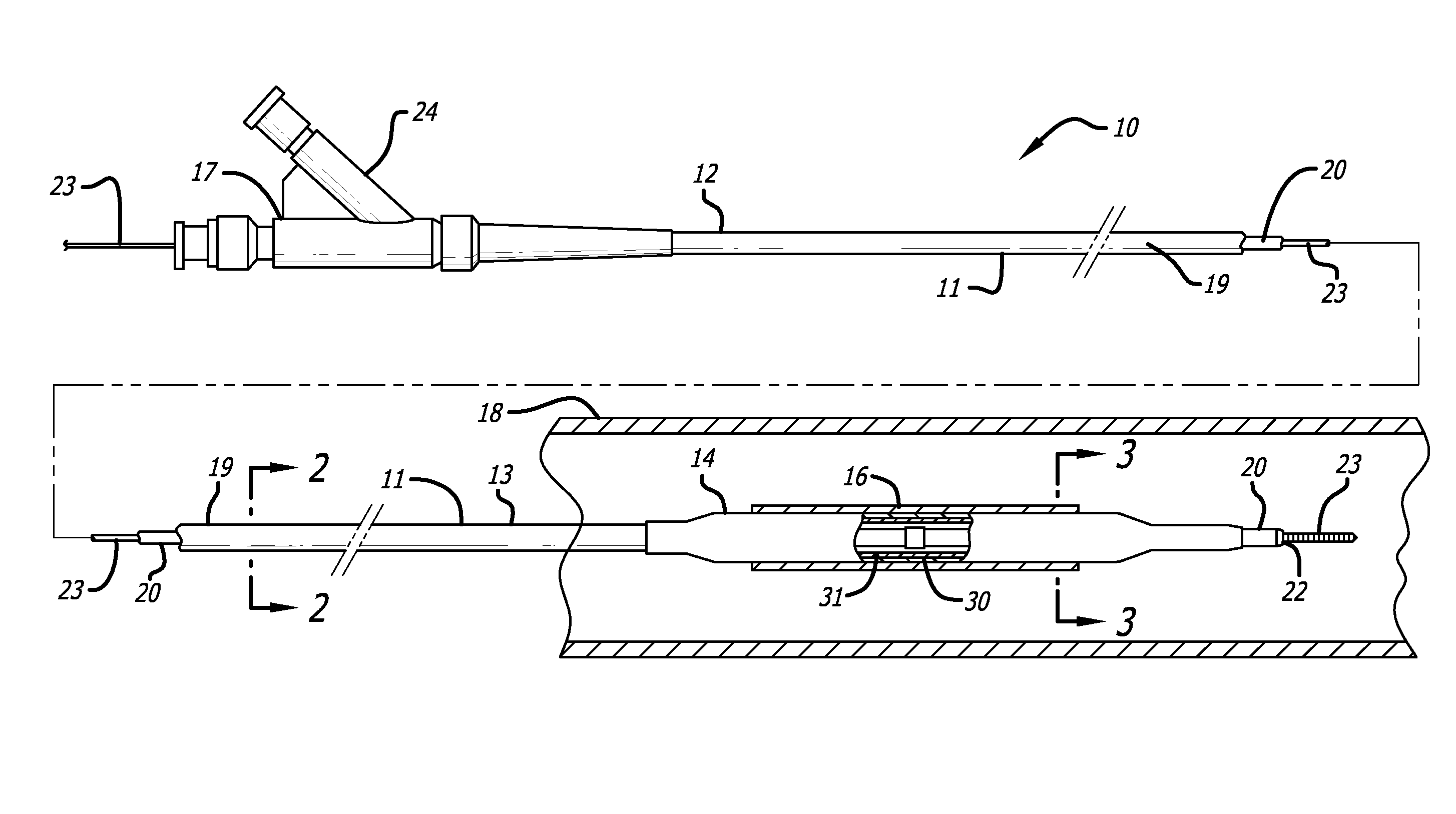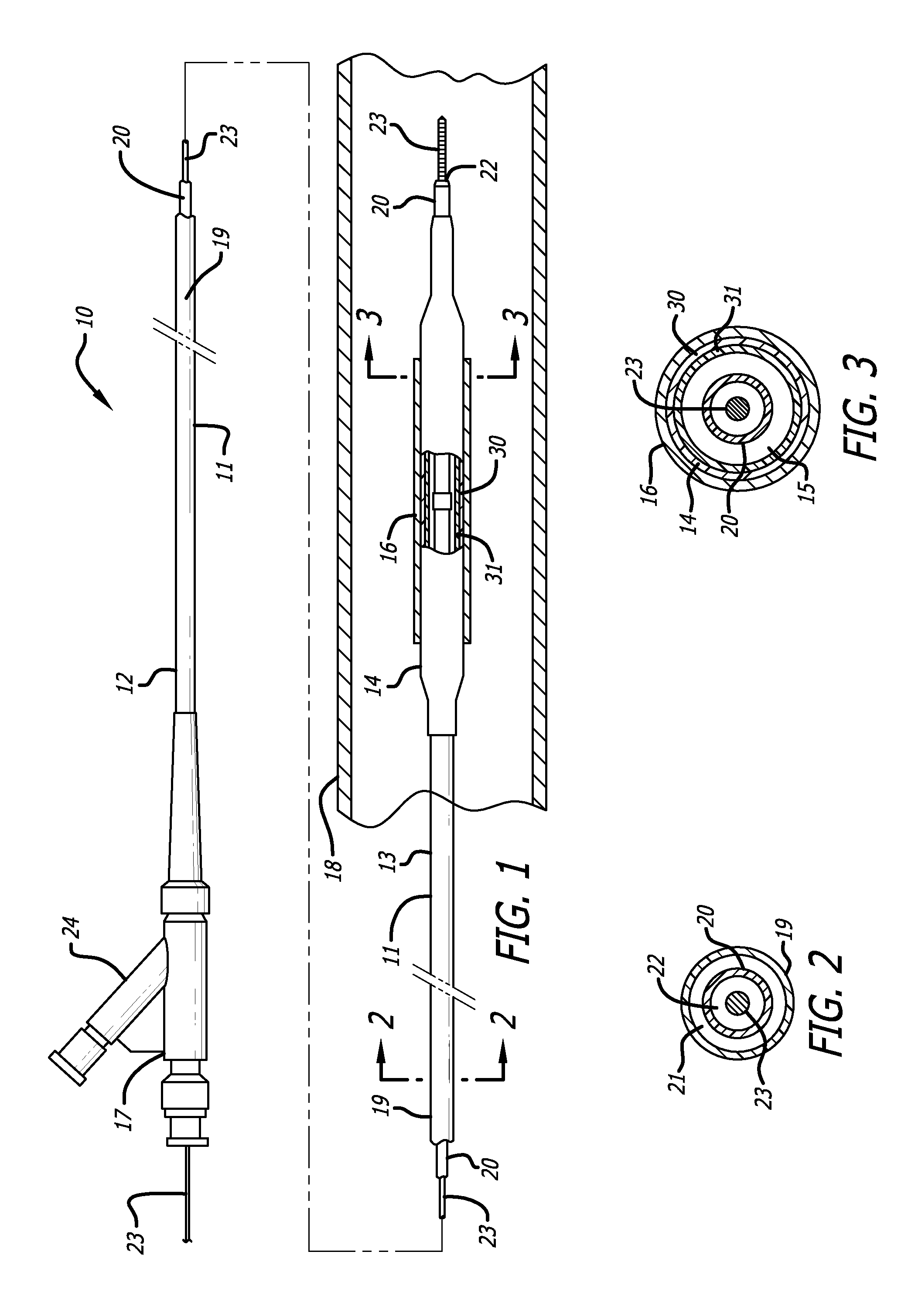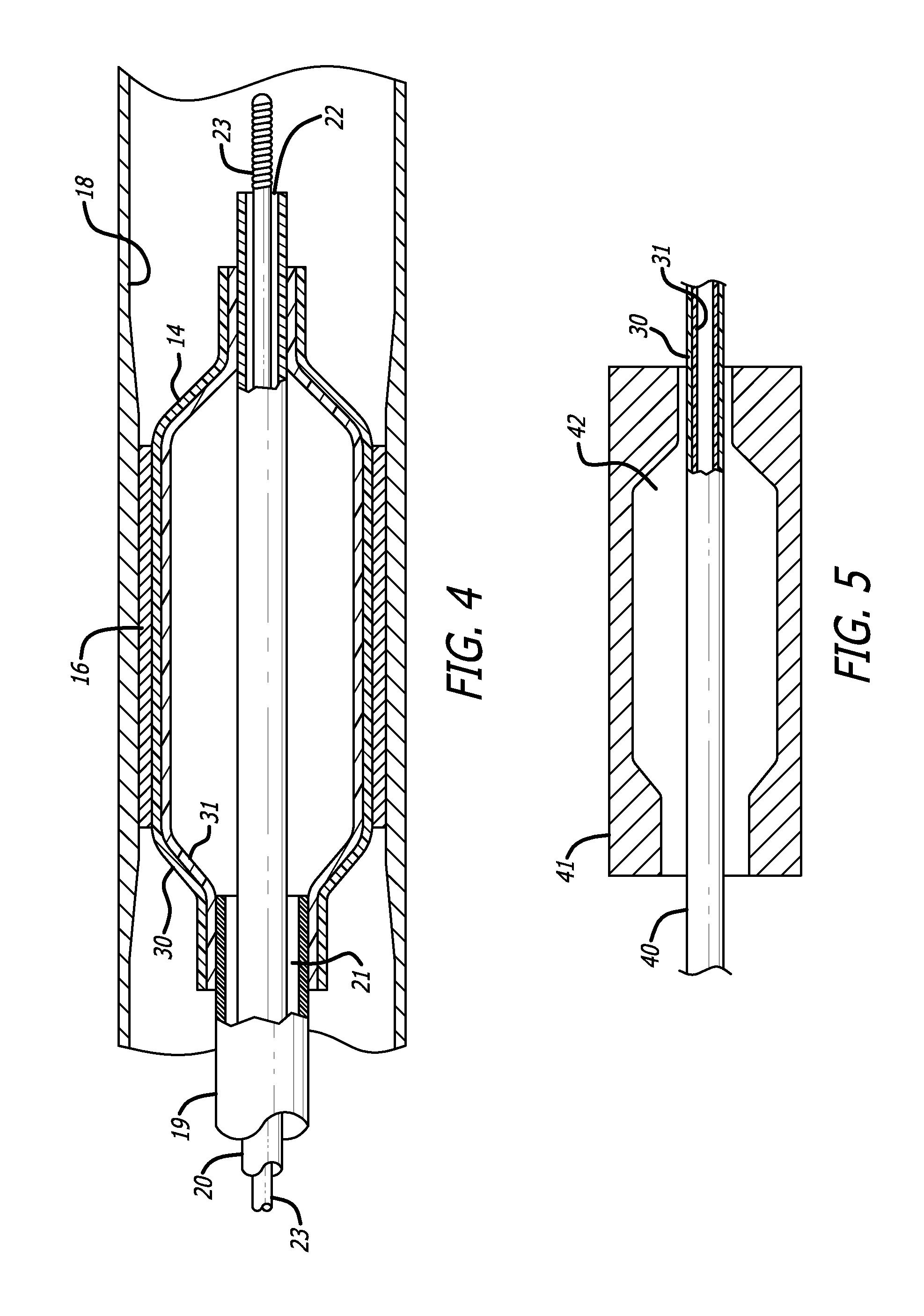Catheter balloon and method for forming same
a catheter and balloon technology, applied in the field of intravascular medical devices, can solve the problems of reducing affecting so as to improve the compliance and rupture properties, enhance the performance of the catheter balloon, and maintain the effect of the targeted balloon performance level
- Summary
- Abstract
- Description
- Claims
- Application Information
AI Technical Summary
Benefits of technology
Problems solved by technology
Method used
Image
Examples
example
[0100]A variety of experiments have been performed using 3.0 mm 2nd stage balloon molds, dual-layer balloon tubing (Pebax 63D inner, Pebax 72D outer) and the double-blow process with various 1st-stage balloon mold sizes. The highest degree of success is attained by extruding balloon tubing to the same ID as conventional tubing, but with a smaller OD, and correspondingly reducing the area draw down ratio (ADDR) resulting from a 2nd stage balloon expansion so that the wall thickness within the working length matches that of a conventional 3.0 mm balloon.
[0101]The target range for % elongation to failure of conventional as-extruded balloon tubing (ca. 225%) does not work well for the present invention. Consequently, the actual ADDR's resulting from 2nd stage balloon expansion were too high in initial experiments, which led to inadequate wall thickness and abnormally low rupture values. However, analysis of the balloon compliance test data showed that, despite undesirably low ruptures, ...
PUM
| Property | Measurement | Unit |
|---|---|---|
| temperature | aaaaa | aaaaa |
| pressures | aaaaa | aaaaa |
| elongation to failure | aaaaa | aaaaa |
Abstract
Description
Claims
Application Information
 Login to View More
Login to View More - R&D
- Intellectual Property
- Life Sciences
- Materials
- Tech Scout
- Unparalleled Data Quality
- Higher Quality Content
- 60% Fewer Hallucinations
Browse by: Latest US Patents, China's latest patents, Technical Efficacy Thesaurus, Application Domain, Technology Topic, Popular Technical Reports.
© 2025 PatSnap. All rights reserved.Legal|Privacy policy|Modern Slavery Act Transparency Statement|Sitemap|About US| Contact US: help@patsnap.com



